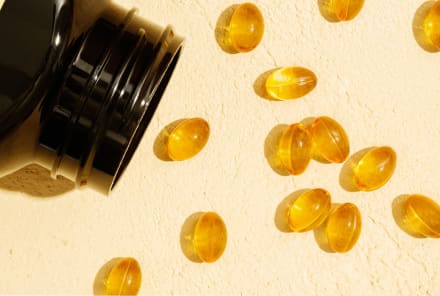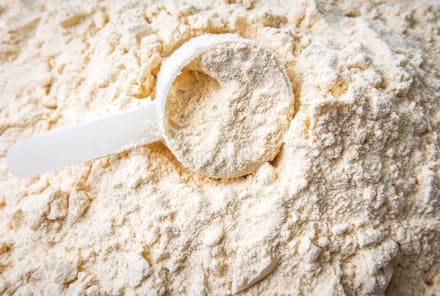Advertisement
Exactly What Happens To Your Body When You Start Taking A Probiotic? Experts Weigh In


Sure, you may have heard that probiotics can have a positive influence on gut health—but, have you ever questioned why? What are the gut-friendly bugs so many people talk about, and what exactly happens to the body when they're added to a supplement routine?
To get a clear picture of what probiotics do and how to tell if they're working, mbg spoke with functional medicine doctors and gut health experts. Here's what they have to say about what happens when you start taking probiotics.
What happens when you take a probiotic?
Probiotics are a live bacteria that help support gut health.* When you take a probiotic supplement, you contribute more good bugs to your gut.* "The probiotics are like good cops," Robert Rountree, M.D., renowned integrative physician, previously told mbg. "We're putting in the good cops, and the good cops can keep watch over the bad guys."
By introducing good bacteria to the gut microbiome, probiotic supplements and foods can help support gut microbial balance and promote healthy digestion.*
Since they are literally alive, functional medicine doctor Amy Shah, M.D., says probiotics will metabolize differently for different people. Depending on a person's existing gut health, they may take longer to start working or lead to side effects initially.
That said, “The longer you take a probiotic, the more diverse your microbiome will become, and the stronger your immune system and GI tract get,*” integrative physician Bindiya Gandhi, M.D., says.
How do you know if it's working?
For some people, probiotics can start to work within 24 to 48 hours, Shah says, while others may not experience results for weeks. Significant, positive changes in the gut microbiome could even take months to settle in.
The physical changes may vary from person to person, but if a probiotic is working properly, the gut health support should be noticeable and felt.
According to Gandhi, an effective probiotic can help ease bloating and gas and promote abdominal comfort.* "For some it may translate to less fatigue, less brain fog, more energy, and being able to eat foods they could not tolerate before," she adds.*
That said, it's important to remember that a probiotic does not work in isolation and that proper diet, stress reduction, exercise, and other lifestyle measures are key to helping those good gut microbes grow and flourish.
Are there any potential side effects?
Before seeing improvements, some people may experience gastrointestinal side effects. "Many people can get gas or bloating in the first week or two since it's new bacteria for your ecosystem," Shah explains.
Eventually, these effects should dissipate. If they don't, stop taking probiotics and consult a gastroenterologist or primary care physician for next steps.
That's because long-term GI issues may be indicative of underlying health conditions, like small intestine bacterial overgrowth (SIBO) or irritable bowel syndrome (IBS), which would require more personalized medical attention.
What happens if you stop taking a probiotic?
External effects, including environment, diet, prescriptions, and more, can change the microbiome daily. "But when you stop taking probiotics for at least three days, your microbiome changes drastically," Gandhi says.
She also explains that pausing or stopping supplementation altogether can cause the microbiome to reset to its original state (e.g., suboptimal gut microbial balance), especially if old habits remain.
Bottom line.
When you start taking a probiotic supplement, you introduce good bacteria into your gut. This may lead to a number of benefits such as healthy digestion and regularity, plus less bloating and gas, which means more abdominal comfort.* And make sure to chat with your doctor to make sure you're taking the best possible probiotic for you.
Watch Next
Enjoy some of our favorite clips from classes
Enjoy some of our favorite clips from classes
What Is Meditation?
Mindfulness/Spirituality | Light Watkins
Box Breathing
Mindfulness/Spirituality | Gwen Dittmar
What Breathwork Can Address
Mindfulness/Spirituality | Gwen Dittmar
The 8 Limbs of Yoga - What is Asana?
Yoga | Caley Alyssa
Two Standing Postures to Open Up Tight Hips
Yoga | Caley Alyssa
How Plants Can Optimize Athletic Performance
Nutrition | Rich Roll
What to Eat Before a Workout
Nutrition | Rich Roll
How Ayurveda Helps Us Navigate Modern Life
Nutrition | Sahara Rose
Messages About Love & Relationships
Love & Relationships | Esther Perel
Love Languages
Love & Relationships | Esther Perel

















